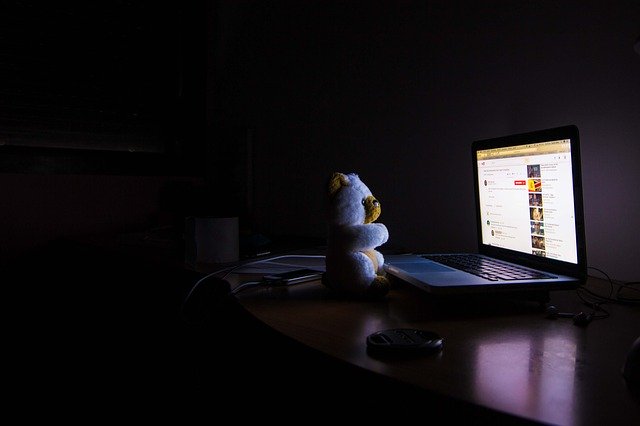Using audio to boost productivity: why it works and what to use

We all know about streaming ‘lofi beats to relax/ study to’, and I’d wager opinions are pretty divided on whether or not background music or ambient noise actually helps or hinders your productivity. Fortunately, there is science behind using audio to focus, and I think a lot of people who dislike ambient audio when concentrating have either used the wrong material, or tried it at the wrong time in their workflow.
I wrote my university thesis on using Machine Learning to generate infinite-length ambient music. It was then that my interest started in why this kind of thing works so well for focusing. I’ll go over when, why and what you should be listening to if you want to add audio to your productivity toolkit.
How it works
It blocks distractions
At our core, we have two different types of attention: conscious and unconscious . When we have a task at hand, and want to get it done, we give it our conscious attention, and work to focus on just that task while ignoring other external distractions. But while this is happening, our unconscious attention is still at play, and is constantly looking for other things to latch onto - be it a sound in the room, an advert on the side of the page, or a distracting recommendation after an educational YouTube video.
The point at which your conscious attention gets fatigued from trying to ignore these temptations is when that lack of focus occurs. Researchers think that ADHD could be caused by a malfunctioning area of our brain which controls our conscious attention.
Audio, of the correct variety, can help to keep that unconscious attention satisfied and stop it overriding our specific intention to concentrate on that key task. It does this by cutting out a whole area of distraction possibilities and replacing it with something just enough to keep our unconscious attention satisfied.
It boosts mood
Lots of research into using music for studying and working has shown that if a person likes the style of music, it will boost their mood which in turn helps them to stay motivated on a task. This is a subtle difference but one which can be hugely beneficial when on a cornerstone between becoming distracted, and entering into a flow state. Positive emotions facilitate learning and contribute to academic achievement, being mediated by the levels of self-motivation and satisfaction with learning materials.
It helps improve memory retention
Audio can stimulate your brain, in the same way that exercise can stimulate your body. Two recent studies have shown this can not only help on the recalling of long term memories, but also on the formation of new ones meaning audio can aid both current and future tasks. The main way this is theorised to work is similar to another method some people use when trying to commit things to memory - colour-coding. People find that organising things by colour helps their brain to form a connection between memories (such as using different coloured highlighters or sticky-notes for different topics). This same phenomena occurs with music. Certain tracks can create a link with the content you are trying to commit to memory, and when it comes to retention, your brain can think of the audio track to remember said content. Pretty cool.
So when should you be listening?
From my research, this part seems the most subjective. Studies seem to directly contradict each other on when exactly it’s best to be listening to audio.
The two main times during a workflow can be broken down to ‘intense, creative’ work and ‘flowing, doing’ work. To explain using an example: first, a software engineer will likely sit and plan out their solution to a problem. This will involve heavily intaking new information and coming up with a new creative plan for the upcoming work. Then, they will put in the time afterwards to write the code for that solution, which is something more standard, routine, and aligns more with ‘doing’.
I personally find that audio helps me most when in the ‘doing’ phase, and silence helps when in the ‘creative’ phase. But this is purely anecdotal, and I have also come across opinions online of the exact opposite. So I would say it’s best to try it out and see for yourself, while keeping these two work states in mind.
There is something to consider on the positive effect of silence here - how often can we achieve complete silence? As mentioned, audio can be used as a tool to block out distracting sounds from areas in which we cannot get complete silence.
What should you listen to?
Notice throughout this article I’ve been saying ‘audio’ rather than ‘music’ or ‘songs’. This is because as well as music, you can use almost anything else you like, such as the ambience and background noise of a coffee shop or library for example, as long as it fits a few criteria. It should be:
- Repetitive
You want audio which repeats the same kinds of sounds over and over, rather than consistently introducing new and varied material. Slow, instrumental music works best. This helps it to fade into the background, rather than take centre stage in your mind. - Subdued
Big leads and memorable moments in songs are going to pull you away from your work. Abrupt changes or a lack of fixed rhythm can work to distract us. Stick to softer and less experimental audio. Existing studies primarily use classical music, but any soft electronic or ambient music / background sounds can also work well. - No lyrics
I guess this leads on from the last point, but vocals are made for you to sing along to. No need for that when trying to focus. - Low Volume
Quieter audio can help blend itself into the background easier than music which takes centre stage. This can be tricky when using audio to block out other sounds around you, but try and get the balance right. - Something you actually like
Which is a bit of a no-brainer, but as mentioned above, the dopamine release from hearing sounds we enjoy can boost our motivation to get work done. Pick something which contains sounds you like, e.g. some classical music if you like the sound of the piano, but don’t just throw on your favourite pop bangers. - Avoid sources which are likely to be interrupted
Any audio source which has adverts or will proceed to a recommendation algorithm when finished should generally be avoided. While focus playlists on Spotify & similar music services can work well, their recommendation algorithms are often tuned to what we normally listen to in our spare time. This can lead to shuffles to songs which are way outside the realm of which we discussed above and will require you to shift your attention back to the streaming service in order to get the audio back on track.
Now that you know the criteria behind what makes good focus audio, you may also want to know I am building something which helps alleviate the pain points which other audio sources have when it comes to concentration. Flowful.app is a collection of infinite-length audio and music generators which have been specifically designed to aid your productivity.
Generators remove any interruptions, allow for repetition while never being quite the same, and they have been coded by me (a human), which means I can pick sounds that fit perfectly into the above described criteria.
It’s still early stage, but I’d love feedback from anyone keen to get more out of the audio they listen to while focusing.






Thanks for sharing. I developed Tinnitus a few years ago and ambient sound really helps while I work (writing/dictation). I like any nature sounds (and occasionally Lofi beats). My favorites are waterfalls, babbling brooks, thunderstorms, and crackling fires. Good luck with your product!
Sorry to hear that! its really cool to know that ambient sounds can help alleviate that pain.
ambient spaces like the ones youve mentioned are actually the type I have created the least generators of so far. so thanks for the inspiration! I'll make sure each of those will make it onto Flowful. I already have some sound recordings of thunderstorms and waterfalls I was planning on using.
thanks for sharing with us! cool subject to do your thesis on, and flowful sounds great 🙌
thanks! the thesis was a few years ago now, but the idea for Flowful had stuck with me ever since.
Thanks for sharing. I have been programming for quite a while now and I tried listening to music to boost my productivity but I think it does not work for me unless I am doing time with Pomodoro.
I'm pretty sure I have ADHD and music absolutely helps me focus when there's too much going on around me. But as you say not all music, I have a weird playlist that for whatever reason helps me get stuff done.
Thank you.
What kind of stuff is in the playlist?
You might like some of the 'musical' tracks on Flowful. I modelled them (the track named 'Relief' specifically) for people with ADHD, as I read that polyrythms (2 rythms which are on different time scales, and only line up rarely) are great for ADHD, as they are more complex than other forms of music.
Mainly rock and Punk is in the playlist.
Thank you for sharing this! I recently found out that I can work longer hour if I have music covers playing in low volume. What you wrote really made sense to me. Thanks!
https://www.youtube.com/watch?v=vXj71r-WrQk&t=2s&ab_channel=Everness
excellent choice my friend.
classical fantasy stuff like this is probably the most difficult genre for me to pull off generatively like on flowful
Really interesting! Thank you for sharing!
Post rock music at low volume always used to do the trick for me when working in an office environment. Certain albums really helped me concentrate back then. Definitely not for everyone though. Another option was always the sound of rain
I'd guess you knew those albums inside and out? That can help to remove any surprises which might distract you. And of course means it boosts your mood while listening to them.
Well, there was one particular album in particular and it tends to blend together very nicely so I would most probably still struggle to name particular tracks on it. Of course, being instrumental also makes it a bit tougher. It was just the kind of album where you can't help but get lost in thought regardless of what you're doing. That was my experience at least.
Btw, for anyone here into post rock. Listen to This Will Destroy You's self titled album. Very aptly named, but not for the reasons that anyone not into the genre will guess. Somehow stimulates contemplation if you're not busy with something else.
I've started experimenting with listening to music when working when I started developing BotMeNot. Before that I was really really only able to focus while working in complete silence (or in an environment that is as silent as possible).
One thing that I especially agree with here is that lyrics and songs with abrupt changes absolutely do not work in my case. I usually stick to either slow classical music or some of those long YouTube videos of repetitive sounds.
Interesting. What do you think changed? Do you work in a different environment than before? Or have you started listening to different material?
Out of interest, where do you usually get your classical music from?
Looks really cool! I also created something similar: soundescape.io
Nice idea.
Lots of images are not loading for me.
Is the site defunct?
Very nice. I love the full screen element and the 3d space feature is a really unique touch. Very immersive.
I see your product hunt launch went well! Lots of love for the product. Makes me hopeful about mine 🤞
Yea it went quite well, even without an audience.
I'd love to continue working on Soundescape, I struggled to find good acquisition channels and then my freelance work took over and I didn't find enough time to focus on it more.
Good luck for your launch!!
Thanks! Much appreciated.
This comment was deleted 2 years ago.
Classic! Maybe you could branch out into ambient spaces (thunderstorms, rain especially) as they are quite similar to static noise.
This comment was deleted 2 years ago.